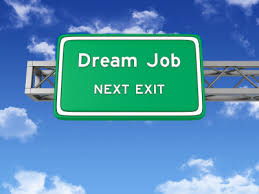The holiday rush is on. The New Year is right around the corner.
This season is full of activities, energy and hope. But, that is not always the case for unemployed people searching for a new job.
In the United States, we still have millions of unemployed or underemployed people — many of who feel lost, forgotten and sad.
Businesses, in all regions, are still struggling to find employees with the skills they need.
The holiday season presents challenges for both employers and potential candidates. For many job seekers, the holiday season can intensify emotions, stifle momentum or even bring discouragement to an all-time high.
I have helped thousands of people with their job search and hundreds of top executives. No matter what your level, expertise or industry almost all job seekers experience dry spells, dips in results, and times when confidence and hope seem lost.
If you have been unemployed for any period of time, there are points where you may need more than job search help. Please seek assistance when you need it. Little obstacles not resolved can turn into big barriers to your next job.
Whether you are in a state of depression and need medical help or need help with heat/food there are many resources. Many you will never know about if you don’t ask for help. There is no disgrace in asking for assistance. We all need help in some form during our lives.
If you are experiencing a dip in expected results or feel like you have “hit the wall” in your job search, don’t worry, it is not uncommon. Below are a few tips to ward off the blues or at least help you regain your momentum.
1. Know your what you offer.
Learn how the market views your offering and who needs your skills and experience.
Be willing to flex your approach to the market. Being open and realistic about your local market can help you maintain your focus and manage your fears.
Statistically, the time it takes to become re-employed has changed from 2007 to 2014. If you want to learn more, here is a presentation for MIT Alumni by Ofer Sharone, a leading researcher in this area.
2. Care for yourself.
A job search can be stressful. Create a plan that includes healthy nutrition, exercise and down time. Take mini-breaks daily to relax and enjoy the fresh air. Breathe — providing oxygen to your brain has been proven to help you think more clearly.
Learn to meditate and/or visualize your actions. Either, or both, help!
3. Build and maintain a support system.
Stress and/or focused activity often causes humans to draw inward. Most humans function best within a community.
Think about work teams and life structures, like our cities and towns. People are social creatures and like to help, share and want others to be successful.
The U.S. culture also teaches us not to butt in. So if you don’t reach out and ask for help you may find that the people around you are shy about offering assistance.
Ask. You will be surprised what like-minded people will share.
Talk. Conversations open many doors.
Join. Professional groups, support groups and engage in your community.
Give. Share your expertise or lessons learned. Thank those who help you.
Receive. Accept from those who support you. You can always set aside an idea that does not work. However, if you reject or are unwilling to receive, the flow of support may stop.
4. Create a plan, take action, evaluate at benchmarks.
Finding a job requires you to market yourself. Create a marketing plan with goals, action items and evaluation benchmarks.
Pick 3 action items daily and execute them. Ensure 70% or more of your actions involve engaging people. Neither voicemail nor email count as engaging people. Interacting with people face-to-face, by phone or in groups is critical to generating ideas, support and opportunities.
Record your actions and your results and evaluate against your benchmarks/goals.
Recruit a mentor, coach, friend, family member or fellow job seeker to help you stay accountable to your goals — report to them each time a benchmark is reached.
5. Be creative and consider alternatives.
Understand that some goals will not be achieved and others may not materialize on your timeframe.
Think about options. How can you expand your network? How can you create alternative income streams? What can you do that you did not consider at the start of your search?
Test your views about temporary assignments or contract positions. Test your beliefs about security and job tenure.
I often hear people speak about permanent or full-time jobs. What does that mean to you? What does that mean in the marketplace?
Be honest with yourself. What is permanent? If we are honest with ourselves, we realize no job is ever permanent — change happens all the time.
6. Spend your time wisely and with the right people.
Not all tasks or people are as effective as others. Yes, people do find jobs via job boards online, however, it is not the most common source of job leads.
Some people are helpful and positive and others are not. When possible, stay away from negative people and situations. If you are feeling blue, don’t spend your time with other sad or negative people. Research shows that your body will sync with the vibrations around you. Sad music creates a sad mood. Upbeat music lifts the vibration of a room.
The same is true with people. If there are people in your life that bring you down or impact your job search in a negative manner take a break from these people.
7. Monitor your attitude.
You control how you view and react to the world. Resilience and confidence are important. Each are built on skills you can practice and a mindset you can develop.
Add things to your life (and your job search schedule) that bring you joy, hope and a sense of gratitude. A simple quote or photo at the beginning of each day can lift your mood.
Understand you will have days and periods of time where your job search will plateau or drag. Maintain focus on activities that garner results. When you need help, seek a qualified counselor or career coach. Build a team that provides encouragement and guidance.
Should the job search holiday blues grip you, my hope is that these tips will help. Brighter days are ahead. You can regain your momentum.
Have you beat the holiday blues? Do you a tip or action that helped you?
Please share it below. Your share might be the gift another reader needs this season.
Anyone fighting the holiday job search blues who calls me this week will receive a 30-minute one-on-one phone session during the week. We will focus on action steps to accelerate your search and regain your momentum. If you need help, pick up the phone.
 Intentions will transform your career, your search and your life.
Intentions will transform your career, your search and your life.







